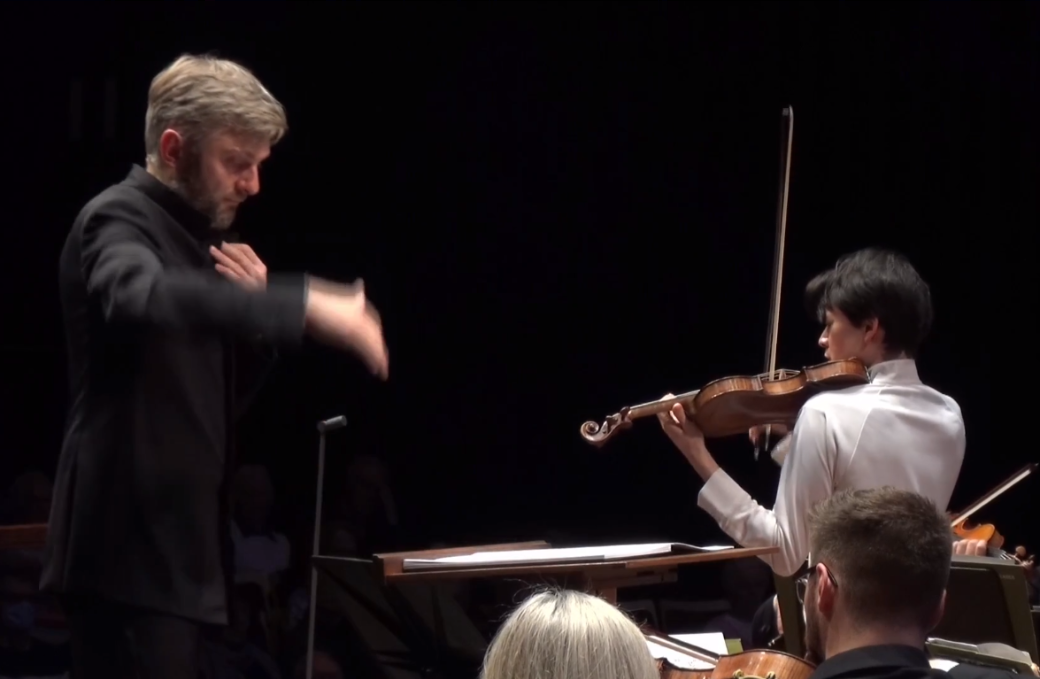It‘s not often you’ll encounter the name Reinhold Glière in an orchestral concert, let alone twice. But this is the Bournemouth Symphony Orchestra, renowned for exploring less familiar repertoire especially from Eastern Europe. This end-of-season programme placed early and late works by the Ukrainian composer alongside popular fare by Debussy and Ravel. It was a decision that undoubtedly worked in favour of the French impressionists, yet there was no shortage of involvement in Glière’s two works, both new to this orchestra and both imbued with a late Romantic idiom redolent of Tchaikovsky. Given his stylistic conservatism, it’s ironic that Glière lies buried in Moscow’s Novodevichy Cemetery near to Sergei Prokofiev and Dmitri Shostakovich.

The evening’s first half comprised two watery evocations beginning with Glière’s symphonic poem Sirens dating from 1908. Ominous indications of the enchantress’ intentions and turbulent grey seas were well captured in this atmospheric account which encompassed within its brooding outer panels music bearing kinship with the composer’s late 19th-century forebears, if without their flair for dramatic colouring. That said, the BSO brought Glière’s cinematic score to life, vividly projecting its narrative of a doomed sailing vessel lured to the ocean depths.
Debussy corrected the proofs of La Mer in Eastbourne during the summer of 1905, its three movements prompted less by the well-behaved English Channel than by the startling seascapes of Turner. The work’s resulting inspiration unfolded with considerable ease, Karabits charting a fine balance between mystery and turmoil and bringing the arrival of midday to a magisterial climax. Jeux de vagues (Play of the Waves) was light and refreshing, with a dash of salt-spray and fluidity. Most impressive was the closing Dialogue du vent et de la mer (Dialogue of the wind and the sea), complete with fanfares, where Karabits and his players relished Debussy’s drama. Glassy strings, priapic horns and scorching trumpets were all brightly signposted, the emotional temperature swelling to a tumultuous send off.
Back to Glière for his rarely performed Violin Concerto in G minor, here receiving its UK premiere. The work was left unfinished at his death in 1956 and completed by his pupil Boris Lyatoshynsky, a name already familiar to regular BSO audiences. Lasting just under 20 minutes, this compact single movement work is rich in melodic invention, yet its reminiscences of Bruch and Tchaikovsky, among others, have perhaps contributed to the work’s neglect. Its bravura manner momentarily foiled soloist Stefan Jackiw whose bow hair suddenly came adrift but, with barely a pause, he valiantly continued (borrowing the leader’s bow) to unveil the concerto’s pyrotechnics with aplomb. Far less strenuous was his rendition of Bach’s Largo from the Violin Sonata in C major, BWV1005, a deeply moving encore, conveyed with spellbinding beauty of tone.
Ravel’s intoxicating danse macabre that is La Valse brought the evening to a wildly unbuttoned close, Karabits drawing fresh energy from his players in an electrifying account that underlined the composer’s own description of the work as an “impression of a fantastic, fatal whirling motion”. By turns nostalgic and sardonic, this farewell to pre-war Vienna left little doubt that Ravel was a master orchestrator and that the BSO is one of the finest orchestras in the country.


